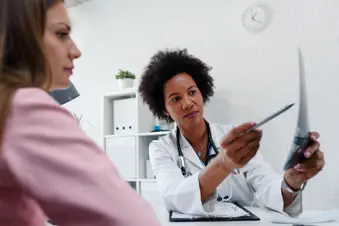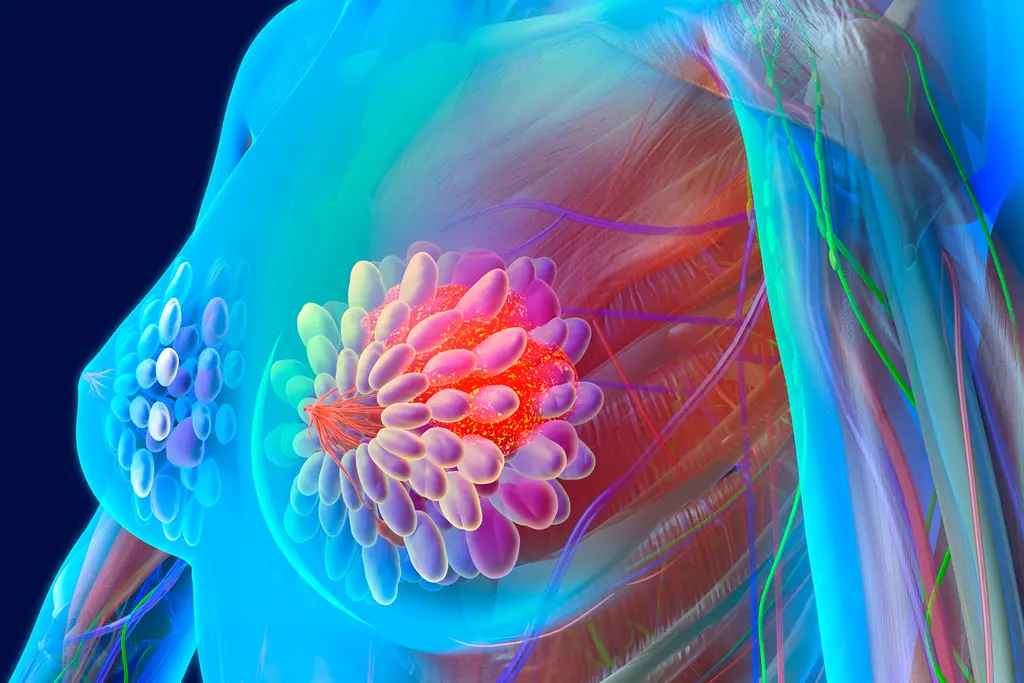
Your doctor has just told you that you have early-stage HER2+ breast cancer. Now what? It may take some time to process your emotions. Yet in most cases, it’s also essential that you make some relatively quick decisions about treatment.
While it’s natural to feel overwhelmed, having a good overview of where to go from here may make the process a bit smoother.
Understand Your Diagnosis
HER2+ breast cancer is fueled by a protein called HER2 (human epidermal growth factor receptor 2). That’s important, because there are specific treatments that can effectively target this protein and kill the cancer without damaging healthy cells.
Some breast cancers, including some that are HER2+, contain receptors for estrogen, progesterone, or both. If yours does, you may be able to use treatments that target one or both of these hormones.
Your doctor should tell you about the stage of your cancer. If it’s “early stage,” then it’s most likely stage I, but you should clarify that with them to be sure. Stage I means the cancer has invaded healthy breast tissue, but the tumor has not gotten very large and cancer cells have not spread (metastasized) elsewhere in the body.
Feel free to ask your doctor as many questions as you need for you to fully understand your diagnosis.
Weigh Your Treatment Options
Your oncologist will outline what they believe is the preferred treatment for your specific cancer. Most people with breast cancer will need surgery to remove the tumor. Your oncologist should explain whether a lumpectomy or mastectomy is the better option for you.
Your doctor should also explain whether chemotherapy or radiation therapy is advisable for you. They’ll let you know whether it would be best to have these treatments before or after surgery.
For early-stage HER2+ cancer, you’ll likely benefit from taking a drug that targets the HER2 protein on your cancer cells.
If you have any doubts about what your oncologist suggests or simply want another expert to weigh in, get a second opinion. You may also want to ask your doctor or doctors about whether you might benefit from joining a clinical trial for experimental treatment.
Solidify Your Support System
As you get ready for treatment, remember that family members and friends can serve as invaluable sources of support. Think about who you want to share your diagnosis with. Then decide what kind of support would be most helpful, whether it’s going to doctors’ visits with you or dropping off meals while you recover from surgery or chemo.
It may also be worthwhile to work with a patient navigator. This is a trained expert who can help you better understand your options, schedule appointments, and help you make decisions about your care. Many hospitals have patient navigators on staff.
Meanwhile, don’t hesitate to connect with cancer survivors or others who are going through treatment.
Finalize Your Treatment Schedule
Once you and your oncologist have decided on your specific treatment plan, you’ll need to map out each piece of it. That may mean scheduling surgery as well as setting specific dates for radiation, chemotherapy, targeted therapy, or other treatments. Ask your provider to write the schedule out for you so that you know:
- Which treatments you’ll be getting
- How you’ll get chemotherapy (by mouth, as a shot, or by IV) if chemo is part of your plan
- Where you’ll get treatments
- How often you’ll need treatments and for how long
If you expect any scheduling conflicts during this time due to your job, travel plans, or religious observances, now is a good time to let your doctor know.
Grow Your Health Care Team
You may see a variety of providers, such as medical, surgical, and radiation oncologists. Depending on your personal needs and concerns, you may also want to ask for a referral to one or more other professionals, such as:
- Dietitian
- Social worker
- Rehabilitation specialist
- Alternative health provider
Ideally, seek out care at a comprehensive cancer center where all the members of your care team can work closely together.
Show Sources
Photo Credit: Lordn / Getty Images
SOURCES:
American Cancer Society: “Targeted Therapy for Breast Cancer,” “If You Have Breast Cancer,” “How Treatment is Planned and Scheduled,” “Breast Cancer Hormone Receptor Status.”
Breastcancer.org: “Breast Cancer Stages.”
Dana-Farber Cancer Institute: “Patient Navigator Program.”
Mayo Clinic: “Breast Cancer.”
MD Anderson Cancer Center: “5 Things Newly Diagnosed Breast Cancer Patients Should Know.”
Roswell Park Comprehensive Cancer Center: “Importance of a Strong Support System.”
